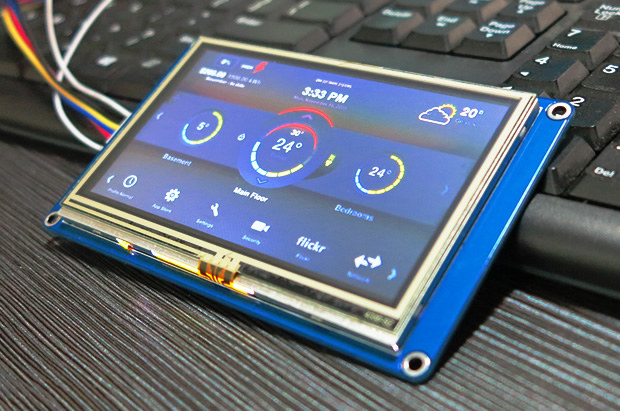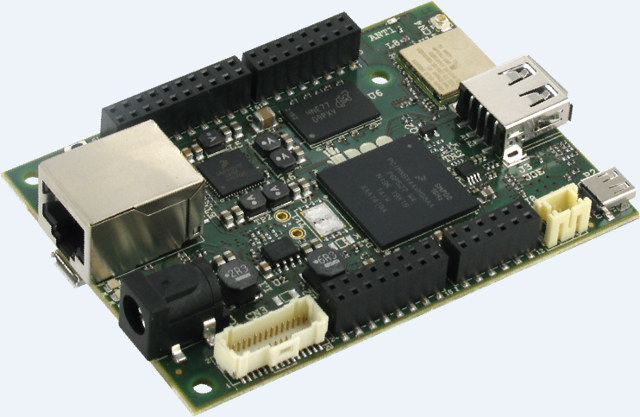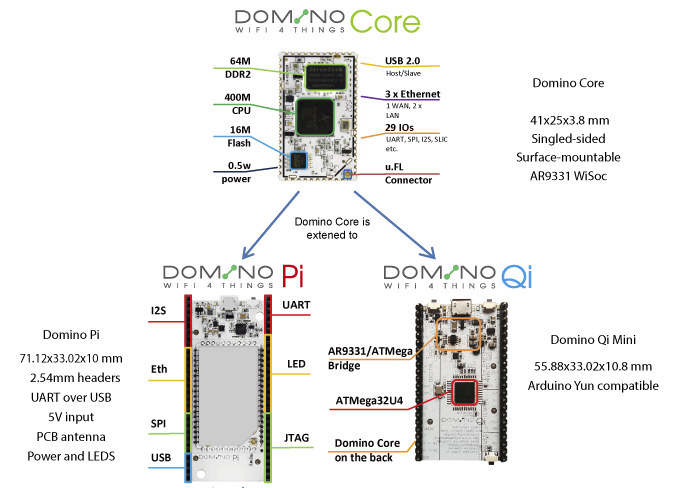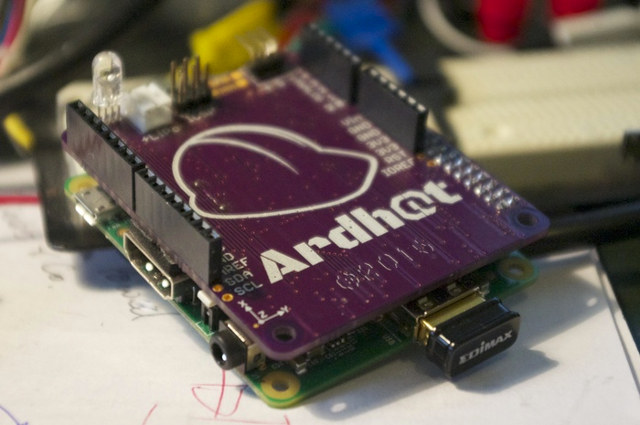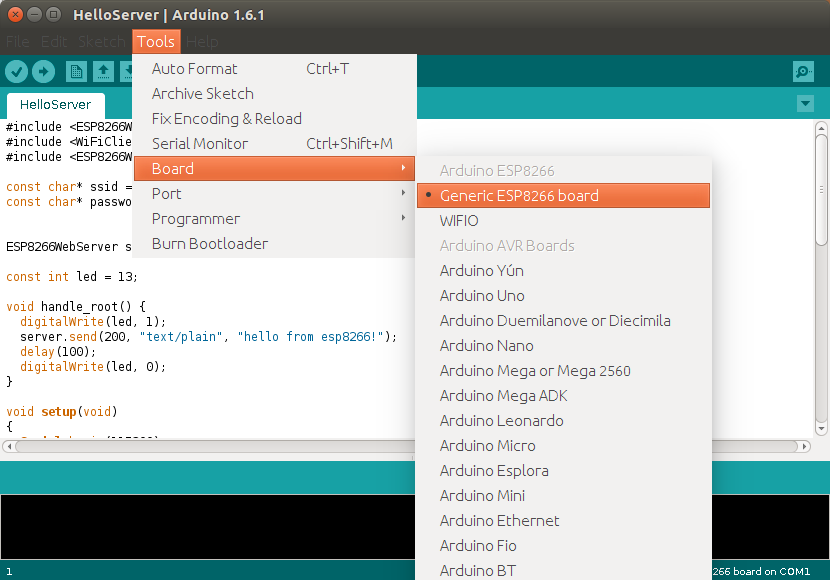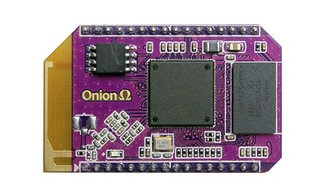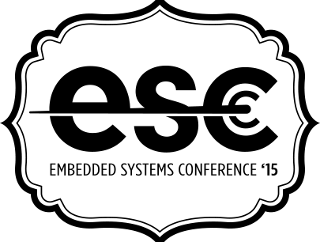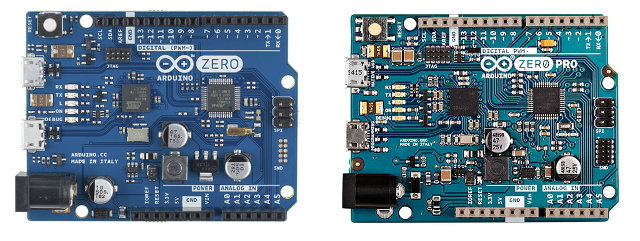You may want or need to add a small TFT display to control your devices, and it may not always be easy to interface with the hardware, and desiging the user interface may be time consuming. ITEAD Studio latest project, Nextion TFT HMI touchscreen displays, aims to simplify connection with a simple UART interface, and make UI design easier with their Nextion Editor that allows developers to create a user interface without coding. Two models are available: Nextion-2.4″ 2.4″ display with 320×240 resolution Refresh rate: 80 ms 4MB flash 4-pin UART interface Micro-SD card slot, GPU, resistive touch sensor. Dimensions – Board: 74.43 x 42.85 x 3.32 mm; display: 60.78 x 42.62 mm Power Consumption – Sleep: 20 mA; active: 90 mA Nextion-4.3″ 4.3″ display with 480×272 resolution Refresh rate: 20 ms 16MB flash 6-pin UART interface Micro SD card slot, GPU, RGB driver, RGB buffer, resistive touch sensor Dimensions […]
UDOO Neo Combines Arduino, Raspberry Pi, Wi-Fi, Bluetooth and Sensors into a Single $49 Board (Crowdfunding)
UDOO Neo was unveiled last February as the first hobbyist board features Freecale i.MX6 Solox Cortex A9 + Cortex M4 processor. I was expecting UDOO to design support board since their earlier UDOO board combined Freescale i.MX6 processor with an Atmel MCU, and the new processor allowed for integrating the same functionality into a single chip. The board is now on Kickstarter where you can pick UDOO Neo Basic for $49 (Early bird is $35), or UDOO Neo for $59 (Early bird was $45) adding an Ethernet port, some sensors, and 1GB RAM, instead of 512 MB for the Basic version. But both versions of the board basically share the same specifications: SoC – Freescale i.MX 6SoloX ARM Cortex-A9 core @ 1GHz with 2D/3D GPU and ARM Cortex-M4 Core @ 166 MHz System Memory – 512MB (Basic) or 1GB DDR3 Storage – micro SD slot, 8-bit SDIO interface (on expansion headers) […]
Domino Core Wi-Fi Module Powers an Arduino Yun Compatible Board (Crowdfunding)
The makers of GL.iNet OpenWRT compatible router have decided to build a module and two development boards based on Qualcomm Atheros AR9331 WiSoC. Domino.IO is composed of a Domino Core Wi-Fi module that can be used in your own project, but if also part of Domino Pi, a breadboard-friendly board featuring the module, and Domino Qi mini, a similar board with an Atmel ATMEga32U MCU making it compatible with Arduino Yun board. Domino Core specifications: SoC – Qualcomm Atheros AR9331 MIPS processor @ 400MHz with System Memory – 64MB DDR3 Storage – 16MB flash Connectivity – 802.11 b/g/n Wi-Fi with u.FL connector I/Os via half through holes – USB 2.0 host/slave, 3x Ethernet, 29 IOs including UART, SPI, I2S, SLIC, etc… Dimensions – 41 x 25 x 3.8 mm Domino Pi and Qi mini summarized specifications are shown in the table below. Domino Pi Domino Qi Mini Wi-Fi Module Domino […]
ARDHAT adds Arduino Shield Compatibility, an ISM Band Radio to Raspberry Pi and ODROID-C1 Boards (Crowdfunding)
NinjaBlocks created Pi Crust add-ons board adding a 433MHz radio and Arduino compatibility to the Raspberry Pi Model A & B a few years ago, but the product has since been removed from their store. But a startup called ubIQio has now created a similar product compatible with Raspberry Pi Model A+, B+ and B2, as well as ODROID-C1 which also comes with a 40-pin R-Pi header. The ARDHAT board is a HAT compatible add-on board with an Atmel MCU, Arduino headers, as well as an optional long range mesh ISM radio (433, 868 and 915 MHz) and various sensors. There are four versions of the board: Basic Ardhat, Ardhat-I, and Ardhat-W and Ultra, which share the following specifications: MCU – Atmel MCU @ 16MHz Headers and I/Os Arduino compatible header accepting 5V Arduino shields 12 ch PWM O/P, 6 ch analog I/P Real-time Clock Programmable Power/Navigation combo switch Programmable […]
ESP8266 Wi-Fi Module is Now Supported in Arduino IDE
ESP8266 revolutionized the IoT world by offering an ultra low cost Wi-Fi solution either standalone or connected to a micro-controller board via SPI or UART. There are plenty of tutorials on the web to play with the Wi-Fi module, but it’s only recently an Arduino IDE has added support for ESP8266. If you want to try it, you can download the binary for Linux, Windows, or Mac OS X. Since my computer is running Ubuntu 14.04, I download and extracted arduino-1.6.1-linux64.tar.xz to install it in my PC. Now simply run the arduino script to start the IDE, and select to Tools->Board->Generic ESP8266 board. I don’t own an ESP8266 module myself, but Olimex tried it on their ESP8266-EVB: They connected a serial debug board and selected Tools->Port->/dev/ttyUSB0 in the IDE Selected Tools-> Programmer->esptool Loaded Blink example, and modified it to turn on and off the relay on their evaluation board. If […]
Onion Omega is an Atheros AR9331 Wi-Fi Module Supporting Various Docks and Add-on Boards (Crowdfunding)
There are so many inexpensive Wi-Fi modules running Linux that it would be easy to discard Onion Omega as yet another Wi-Fi module based on Atheros AR9331 WiSoC. However, the developers have tried to bring some added value by making programming easier for web developers, integrating it with a cloud platform (free for non-commercial use), and providing basicor Arduino dock, and add-on boards for Ethernet, OLED, Relay… to make building hardware projects easier too. Let’s go through the hardware first, starting with the module specifications: SoC – Atheros AR9331 400MHZ MIPS 24K System Memory – 64MB DDR2 400MHz Storage – 16MB Flash Connectivity – 10/100 Mbps Ethernet + 802.11b/g/n Wi-Fi up to 150Mbps with PCB antenna w/ uFL connector I/Os – 18 GPIOs USB – 1x USB 2.0 Power Supply – 3.3V; Typ. consumption: 0.6W Dimensions – 28.2mm x 52mm (1.1″ x 2.0″) Since this type of module is not […]
Embedded Systems Conference 2015 Schedule – May 6-7, 2015
The Embedded Systems Conference took the name “Design West” for a couple of years, but this year, there’s no mention of Design West, and the Embedded System Conference 2015 will take place in Boston, MA, US on May 6-7, 2015. The 2-day event will have a demo hall, and well as sessions divided into 8 tracks: Connected Devices and the IoT Embedded Software Design Hardware: Design, I/O and Interfacing Prototyping Embedded Systems Design Software: Design, Languages, & Quality Fantastical Theater Teardowns The full schedule has now been posted, and I’ll build a virtual schedule with some of the sessions provided. Wednesday May 6, 2015 8:00 – 8:45 – Understanding Google/Nest Thread by Michael Anderson, Chief Scientist, The PTR Group, Inc. The IoT will live or die based on its connectivity. In examining existing wireless protocols, Google/Nest found most of them lacking. In order to address the needs for low-power wireless […]
ARM Cortex M0+ Based Arduino Zero Pro Board Gets Listed on Arduino.org
A new “Arduino Zero Pro” board has been listed on Arduino.org, which looks very similar to the Arduino Zero board announced last year, with Atmel ATSAMD21G18 ARM Cortex M0+ MCU, and that is still listed as “Coming Soon” on Arduino.cc website. So it feels a little odd Arduino would release a board with basically the same features. Arduino Zero Pro key specifications are indeed exactly the same: Microcontroller – Atmel ATSAMD21G18 32-bit ARM Cortex M0+ MCU @ 48 MHz with 32 KB SRAM, 256 KB flash, up to 16KB EEPROM (By emulation). 48-pin LQFP package. Digital I/O Pins – 14, with 12 PWM and UART Analog Input Pins – 6, including 5 12bits ADC channels and one 10 bits DAC DC Current per I/O Pin – 7 mA USB – 2x micro USB ports Debugging – USB via Atmel’s Embedded Debugger (EDBG) on-board debugger, and JTAG Misc – reset button, […]


